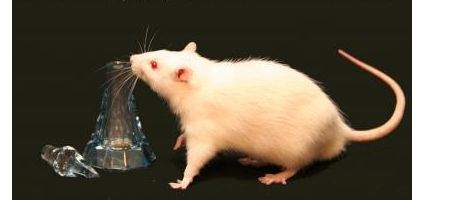Animals can focus their sense of smell in much the same way as humans focus their eyes, helping them detect predators and search out food.

Researchers at the University of Chicago found that rats adjust their sense of smell through sniffing techniques that bring scents to receptors in different parts of the nose. The sniffing patterns changed according to what kind of substance the rats were attempting to detect.
Daniel Rojas-Líbano, a postdoctoral scholar at the University of Chile in Santiago, trained rats to detect a specific odor by rewarding them with a sugar pellet when they responded correctly. Electrodes attached to the rats’ diaphragm muscles measured the rate at which they were taking in air.
He then tested the animals with many mixtures of two chemicals to see if they could pick out those containing the target scent. And they could, regardless of which type of odor they were seeking.
But the rats learned to look for a highly absorbent odor much more quickly than a less-absorbent one. They also inhaled differently, depending on which type of odor they were detecting – sniffing for longer when they were learning to detect the low-absorbing odor.
“What was happening was that the air was moving through the nose at a slower rate and targeting those parts of the nasal epithelium that are further along in the pathway – those more likely to pick up the low-absorbent odors,” says Leslie Kay of the University of Chicago.
For highly absorbent odors, the animals inhaled more quickly because the parts of the nasal cavity that are sensitive to those smells are closer to the start of the nose’s air pathway.
The sense of smell is particularly important for many animals, as they need it to avoid predators and find food.
“Dogs, for instance, are quite dependent on their sense of smell,” saysKay. “But there are many chemicals in the smells they detect, so detecting the one that might be from a predator or an explosive, for instance, is a complex process.”






